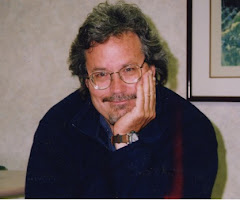Writing in NRO:
Today, no nation sways history because it has salt mines. Salt is still a useful commodity for a range of purposes. We import some salt, so if one defines independence as autarky we are not “salt independent”. But to most of us there is no “salt dependence” problem at all — because electricity and refrigeration decisively ended salt’s monopoly of meat preservation, and thus its strategic importance.
Using salt mines as an example of how strategically dependent this country was on a technology that has become obsolete, Woolsey points to our careless oil dependence as something that we are not necessarily a slave to, though it looks that way now. New technology can, if widespread enough, seriously reduce our dependence on oil. It is not without the realm of possibility that ten or fifteen years from now oil-rich nations will be selling oil as salt-rich nations sell salt today. That is to say: cheaply.
Woolsey describes his organization whimsically as
"A COALITION of tree huggers, do-gooders, sodbusters, cheap hawks, and evangelicals."
Do I find myself in that bunch? Let's see: "Evangelical" as in "Evangelical Lutheran"? Kay. Cheap hawk? That's my middle name, actually. Do-gooder? Got that from my mama. I don't hug trees, but will puppies do? Probably not. And just what exactly is a sod-buster, these days?
Strange bedfellows are part of the American political tradition. At first blush, I think I like this 'un.
Energy--as in the stuff it takes to run our cars, light and heat our houses, power up our computers, our video games, our cell phones, our televisions--has been for the lifetime of most of us a nice, clean convenience. It has been so because it has been very efficiently centralized. Unfortunately, it is centralized in the Middle East. Decentralize it, and suddenly it becomes less convenient, more on our minds. Like the household which heats with wood, decentralized energy won't be as smooth a ride. Instead of just pulling into a gas station and filling it up, we will also have to plug in batteries to get our daily fix of mileage.
The costs to us of cheap, centralized sources of energy are evident. As President Bush says, "We're dependent upon countries that do not particularly like us." We are also slaves to a deeply held belief that is part entitlement and part "we can have it all." Freedom may appear to be free, but sooner or later we are reminded that someone somewhere is paying a price for it.
And in an ironic way, we are the someone, somewhere. As it says on the homepage of the SAF Coalition: "We are fighting a war against terror and paying for both sides of the war."
Ouch.


No comments:
Post a Comment